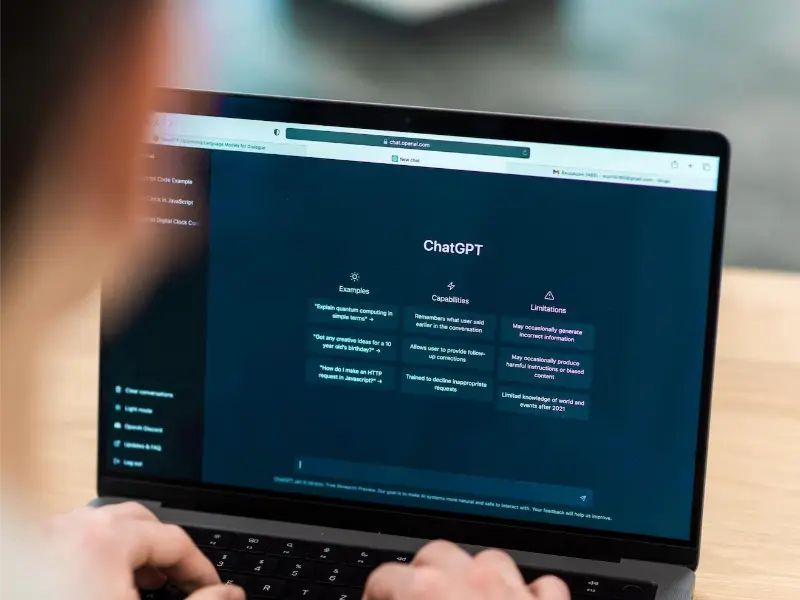- ChatGPT changes communication with its generative AI capabilities.
- Impact spans diverse sectors from customer service to content creation.
- Opportunities abound for innovation and efficiency in AI-driven interactions.
In artificial intelligence (AI), generative models have emerged as powerful tools capable of producing human-like text, transforming how we interact with technology. Among these, ChatGPT stands out as an advancement, leveraging algorithms to generate contextually relevant and coherent responses in natural language.
Transforming communication landscape
OpenAI offers an API for developers to integrate ChatGPT’s conversational capabilities into their applications and platforms. Companies across various industries, such as healthcare, finance, and e-commerce, are using the OpenAI ChatGPT API to build chatbots, virtual assistants, and conversational interfaces that enhance customer engagement and streamline communication processes.
Content creation processes have been streamlined with the integration of ChatGPT into various platforms. Writers, marketers, and creators can leverage AI-generated text to brainstorm ideas, draft articles, and craft compelling narratives with greater speed and efficiency. ChatGPT serves as a valuable tool for generating content outlines, refining drafts, and even generating entire blog posts or social media captions.
Also read: ChatGPT upgrade: More direct, less verbose
In the education sector, ChatGPT offers innovative opportunities for personalised learning experiences and knowledge dissemination. AI-powered tutoring systems can engage students in interactive dialogue, providing real-time feedback, explanations, and adaptive learning pathways tailored to individual needs. Additionally, virtual teaching assistants powered by ChatGPT can support educators in creating interactive lesson plans and delivering engaging instructional content.
Also read: Difference between ChatGPT and AI
Navigating ethical and regulatory challenges
As ChatGPT interacts with vast amounts of data, ensuring data privacy and security is paramount. Developers must implement robust encryption protocols and data anonymisation techniques to safeguard sensitive information shared during interactions. Additionally, transparent privacy policies and user consent mechanisms are essential to instill trust and confidence among users.
Addressing biases inherent in AI models and mitigating the spread of misinformation are critical challenges in deploying ChatGPT responsibly. Developers must prioritise fairness and inclusivity in training data to minimise biases in generated responses. Furthermore, implementing fact-checking mechanisms and content verification algorithms can help combat the dissemination of false or misleading information.
As AI technologies continue to evolve, navigating legal and regulatory frameworks becomes increasingly complex. Policymakers must adapt existing regulations or develop new frameworks to address ethical concerns, liability issues, and accountability in AI-driven interactions. Collaboration between industry stakeholders, policymakers, and ethicists is essential to establish guidelines that promote responsible AI deployment while fostering innovation.
Also read: Are OpenAI and ChatGPT the same?
Unlocking future opportunities
The future of AI lies in advancing human-machine collaboration, where ChatGPT serves as a catalyst for synergistic interactions between humans and intelligent systems. By augmenting human capabilities with AI-generated insights and recommendations, organisations can unlock new levels of productivity, creativity, and innovation across various domains.
ChatGPT has the potential to bridge language barriers and facilitate cross-cultural communication on a global scale. AI-powered translation services like Google Translate and Microsoft Translator powered by ChatGPT can enable seamless communication between individuals speaking different languages, fostering understanding and collaboration in diverse multicultural environments.
As AI continues to evolve, ChatGPT will empower individuals to unleash their creative potential in unprecedented ways. From generating immersive storytelling experiences to composing original music and artworks, AI-driven creativity tools powered by ChatGPT will democratise access to artistic expression, enabling people from all walks of life to explore and innovate.

